IRDAI Registration No. : 016 Valid Till : 15-05-2026 , CIN Number: U85199KA2002PTC030218
Holiday shopping, cooking, decorating and festivities are fun but can also cause stress. Exhaustion, occasional family squabbles and feelings of sadness when things don't always go as planned can dampen holiday spirits. But don't let the seasonal rush get you down. Use these practical tips to minimize stress so you can enjoy the holidays
Still haven't had your flu shot? It's far better to get it now than not at all. Having the flu can be miserable, cause missed work and, sometimes, is life-threatening, primarily in people with chronic health conditions. The CDC says everyone (with rare exceptions) age six months and older, including pregnant women, should get vaccinated against the flu as soon as possible.
How effective are annual flu shots? When vaccines closely match flu viruses in circulation, the risk of getting the flu is reduced 40% to 60% among the overall population. For the 2019-2020 flu season, flu vaccines reduced provider visits for flu illness by 45% as of June 2020, according to the CDC.

Five research-backed tips for preventing colds:
Too busy? Stressed? Overwhelmed? Get a hobby.
Adding another activity to your already-hectic life might sound crazy, but taking time for a purely enjoyable pursuit can be very rewarding as it helps you:
There's no right or wrong hobby. Any structured activity that you like could become a hobby. Simply take the time to make it a regular part of your life.
October is Breast Cancer Awareness Month.
Quik Risk Assessment: Breast cancer
Ongoing research links several factors to an increased risk of breast cancer.
Check the factors below that apply to you. The degree of risk with some factors can be quite small. And having 1 or
2 risks, or even many, does not mean you will get breast cancer.
Factors that can't be changed:
Factors that can be changed:
This assessment is just a starting point for discussing your risks and healthy habits with your health care provider. For example, maintaining a proper weight and avoiding alcohol may help protect you. Or more screening tests might be useful if you're in a high-risk group, based on gene mutations or if you have a strong family history.


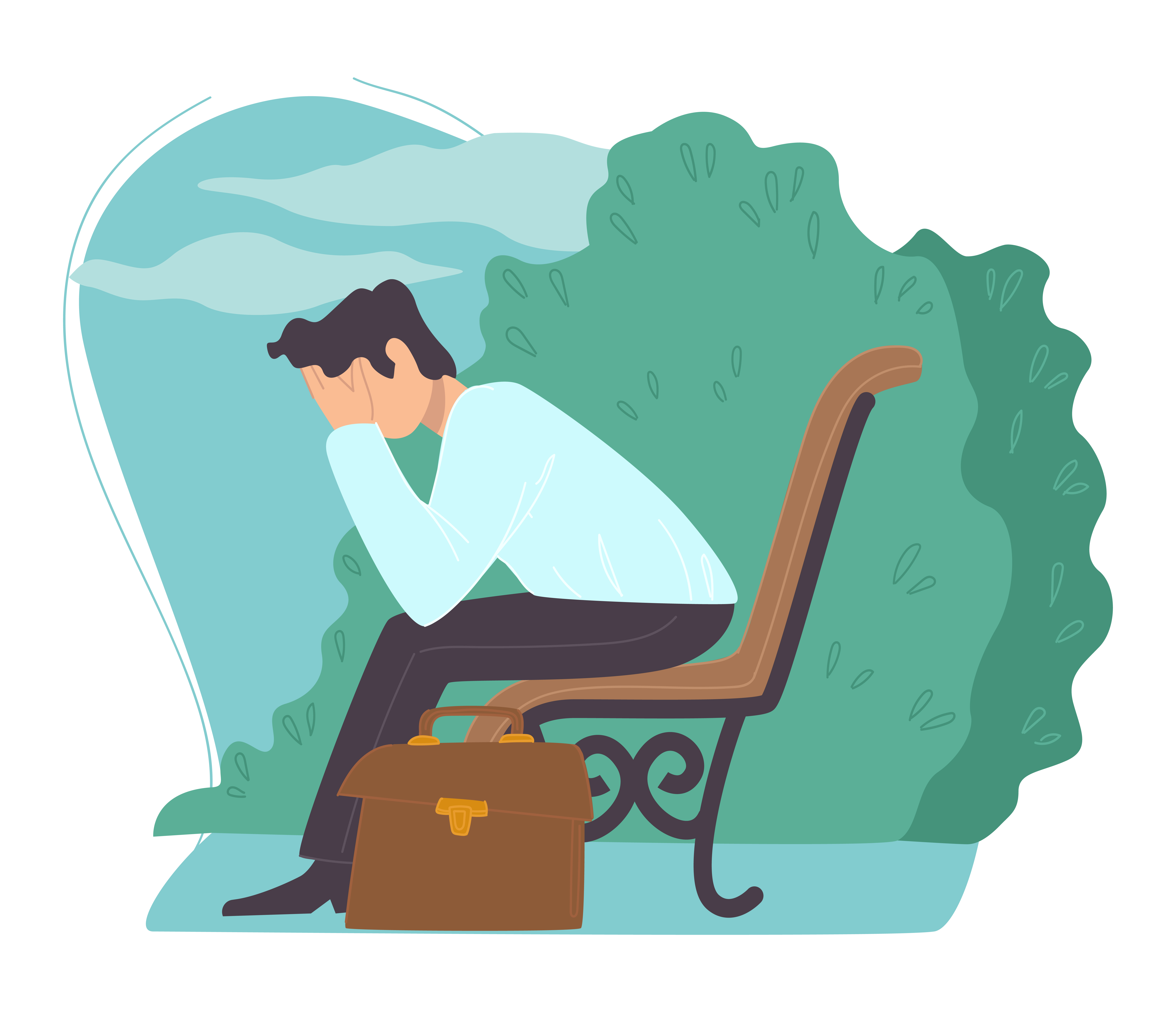
Get a move on quit siting your life away.
With 206 bones and more than 600 muscles, our bodies are made to move. Of course, modern trends and technology have led to a lifestyle of sitting. We now spend the majority of our waking time seated in a constricted posture that prevents our bodies from functioning well.
How serious is too much sitting? Any extended sitting (e.g., more than 8 hours daily) can be harmful. It's now considered a health risk leading to several diseases, including heart ailments, type 2 diabetes, obesity, arthritis and some cancers- even when we meet the minimum exercise guidelines.
Make sitting less a fitness goal. Besides getting 150 minutes weekly of moderate- intensity exercise (such as brisk walking). the American College of Sports Medicine recommends we stay active throughout each day For example:
You'll find that moving more feels good. Sources: American College of Sports Medicine, Mayo Clinic
Gain more from exercise
Finding time to fit in fitness isn't always easy. So how can we maximize our exercise results to gain energy,
muscle tone and weight control? Consider these 3 steps:
1. Add strength training. Its many benefits include improved blood glucose, blood pressure and cholesterol levels and bone mineral density. It may also help with pain control, depression and sleep. A moderate strength routine is 2 to 3 brief workouts a week. If you're a beginner, get your health care provider's advice in planning a routine based on your fitness level.
2. Alternate your activities. When we do the same physical activity for long periods, the body becomes efficient with less demand but little change in overall fitness. Introduce a variety of activities to help prevent boredom and over-use injuries, as well as challenge new muscles.
3. Mix it up: Try weekend hikes or bike rides or join a dance class. Always watch for ways to add physical activity every day. Make it a lifetime habit.
Air quality can be two to five times more polluted than outdoor air, and since 90% of the time is spent inside by people, therefore this can be considered as a big reason for its debate. Poor air quality can threaten your family’s health, so it’s important to keep things out of your home that cause pollution, and ensure that your house is well-ventilated.
What is Air Quality?
“Air quality” refers to the condition of the air within our surrounding. Good air quality pertains to the degree which the air is clean, clear and free from pollutants such as smoke, dust and smog among other gaseous impurities in the air. Air quality is determined by assessing a variety of pollution indicators. Good air quality is a requirement for preserving the exquisite balance of life on earth for humans, plants, animals and natural resources. As such, human health, plants, animals and natural resources are threatened when pollution in the air reach high concentrations.
Poor air quality can affect or harm human health and/or the environment. Air quality can be degraded by natural or man-made sources. Natural sources include volcanic eruption, windstorm dust. Man-made source include pollution from moving vehicles, toxic gases from industries, coal powered plants, burning wood or other material in open air, landfills. Both these sources can seriously affect the overall air quality and can lead to severe health problems for humans.

People buy an air purifier or air filter to improve the indoor air quality in their home or office by cleaning out pollutants like dust, smoke and pollen. But, before buying or should you really buy it –should be the first and most important step is to improve your indoor air quality without buying one more expensive, energy-consuming product.
Common sense is often the best and cheapest way to clear the air. If, however, you're determined to spend money on an appliance that might do little more than run up your electric bill, you should first determine what kind of pollutants you have in the air you breathe -- an air purifier that might be good at filtering out dust, for instance, could be useless at filtering out mold. Once you've decided what you need to filter out, buy a model designed to filter that specific pollutant.
Six simple ways to improve the air quality in your home
Check on these things for purifying air in your house
Don't Allow Smoking Indoors: Since cigarettes are so harmful, never let anyone smoke inside your home. There is no safe level of secondhand smoke so request smokers to take it outside.
Avoid Toxic Products: Hair and nail products, cleaning products, art and hobby supplies and other common products can increase the levels of VOCs (volatile organic compounds). Look for products that are marked “low VOCs” and be sure to open windows and use exhaust fans when using these products.
Ventilate the bathrooms: Bathroom fans can help reduce moisture and prevent the growth of mold. Consider installing a fan with a separate timer that can continue to remove moisture after you turn out the light. If a bathroom smells like mold or you can see water spots, you need to reduce the moisture.
Kill Dust mites: Dust allergies are actually allergies to dust mites – microscopic pests that need moisture to survive. These feed upon human skin and live in bedding pillow, mattresses, stuffed toys, upholstery and carpets.
Beware Formaldehyde: Formaldehyde is a gas found in many products. It is a carcinogen and causes many health problems like throat irritations, skin rashes and asthma like symptoms.
Keeping formaldehyde away from your home by choosing wood panel products that are not made with formaldehyde glues or materials is a good option to practice.
Avoid pesticides while keeping pests away: Pesticides can bring harmful chemicals into your home and may cause added health dangers to children and pets.
Practice integrated pest management to keep your home free of pests and harmful chemicals alike. This means blocking holes and keeping food in tightly sealed containers. Cover your trash and keep your floors and counter free of crumbs. Use bait traps to catch pests.
Reduce Carpeting: Carpets trap unhealthy particles – chemicals, dander, dirt and fungi – and vacuuming can make them air-borne. Hard surface flooring like wood, tiles etc. can be readily cleaned by damp clothing.
Indoor air quality concerns are a fact of life for building owners, business owners, managers, and occupants. A safe environment with a healthy IAQ (indoor air quality) should be maintained in any dwelling as soon as possible. A building managed with an eye for preventing IAQ problems greatly reduces the likelihood of chronic discomfort and will likely increase longevity of the occupants’ life.

Childhood obesity is not a cosmetic issue or something the child will just grow out of. Obese children often tend to become obese adults, and may be associated with many medical issues. Children are even taking the same type of medications now days just like their parents to manage blood pressure, diabetes and cholesterol.
Over the past 30 years, the rate of childhood obesity has more than doubled in children and quadrupled in adolescents. These significant increases have led to a rise in obesity-related health conditions among children and adolescents. One of the recent population-based surveys of 5-17-year-olds revealed that around 70% of obese children and adolescents have at least one risk factor for cardiovascular disease, and it has been well established that the condition can increase the risk of musculoskeletal diseases, diabetes and cancer.
The effects of childhood obesity can persist well into adulthood, and there is global concern that if rates of childhood obesity continue to rise, so will the prevalence of related medical conditions. This will not only put the health of future generations at risk, but it will also put an enormous strain on the economy.
Gone are the days when children would run around and play for hours after school. Now, they are more likely to engage in sedentary behaviors, such as watching TV, playing computer games or using social media. Children now spend an average of 7.5 hours a day using entertainment media.
There are other factors that have been associated with the development of childhood obesity out of which one is genetic disposition is one. Others factors may include primarily unhealthy diets and lack of exercise that have caused rates of childhood obesity to soar.
Fight against childhood obesity: An uphill battle
All public health advocates agree that prevention could be the key strategy for controlling the current epidemic of obesity. It may include primary prevention of overweight or obesity itself, secondary prevention or avoidance of weight regains following weight loss, and prevention of further weight increases in obese individuals unable to lose weight.
Children are often considered the priority population for intervention strategies because, firstly, weight loss in adulthood is difficult and there are a greater number of potential interventions for children than for adults. Schools are a natural setting for influencing the food and physical activity environments of children. Other settings such as preschool institutions and after-school care services will have similar opportunities for action. Secondly, it is difficult to reduce excessive weight in adults once it becomes established. Therefore it would be more sensible to initiate prevention and treatment of obesity during childhood. Prevention may be achieved through a variety of interventions targeting built environment, physical activity and diet.
Interventional Strategies

Conclusion: Obesity is a chronic disorder that has multiple causes. Overweight and obesity in childhood have significant impact on both physical and psychological health. In addition, psychological disorders such as depression occur with increased frequency in obese children. Overweight children are more likely to have cardiovascular and digestive diseases in adulthood as compared with those who are lean. It is believed that both over-consumption of calories and reduced physical activity are mainly involved in childhood obesity.
Apparently, primary or secondary prevention could be the key plan for controlling the current epidemic of obesity and these strategies seem to be more effective in children than in adults. A number of potential effective plans can be implemented to target built environment, physical activity, and diet. These strategies can be initiated at home and in preschool institutions, schools or after-school care services as natural setting for influencing the diet and physical activity and at home and work for adults. Both groups can benefit from an appropriate built environment.
Your immune system does a remarkable job of defending you against disease- causing microorganisms. But sometimes it fails: A germ invades successfully and makes you sick. ..........Is it possible to intervene in this process and boost your immune system? .......What if you improve your diet? Take certain vitamins or herbal preparations? Make other lifestyle changes in the hope of producing a near-perfect immune response? The idea of boosting your immunity is enticing, but the ability to do so has proved elusive for several reasons. The immune system is broadly— a system, not a single entity. To function well, it requires balance and harmony.
Adopting healthy-living strategies
Your first line of defense is to choose a healthy lifestyle. Following general good-health guidelines is the single best step you can take toward naturally keeping your immune system strong and healthy. Every part of your body, including your immune system, functions better when protected from environmental assaults and bolstered by healthy-living strategies such as these:
Health Tip
Keep learning
A lifelong habit of learning and engaging in mentally challenging activities seems to keep the brain in shape. Intellectual enrichment and learning stimulate the brain to make more connections, increasing the density of nerve- to-nerve connections. That means the "educated brain" may possess a deeper well of connections and be able to withstand more damage to the brain from a small stroke without causing loss of memory or thinking skills.
Avoid cigarette smoking
You should certainly avoid smoking yourself for many health reasons, but even being around other people who are smoking can decrease your immune function.
If you are a smoker, you should quit.
If your friends or family members are smokers, try encouraging them to quit. If that doesn’t work, avoid the smokers during times that your immune system needs to be strongest (like during cold and flu season).
Exercise daily.
Establishing a moderate exercise routine can help you be healthier overall. That increased health both boosts your natural immunities and can help you get over illness more quickly.
Sleep at least 7-8 hours each night.
Sleep deprivation can leave your more susceptible to pick up illness. Getting an adequate amount of sleep at night can help your body become refreshed and build its natural defenses. Additionally, getting extra sleep at the first sign of illness can help you bounce back more quickly.
Cut back on caffeine and alcohol. Caffeine and alcohol may be fine in moderation, but excessive consumption of either can compromise your immunity. Remember that water is the best source of healthy hydration, and if you follow other immune- boosting steps like reducing your stress levels and getting more sleep, you may find that you don’t feel like you need caffeine and alcohol as much.
Avoid stress. Stress, particularly chronic stress, can be one of your immune system’s worst enemies.
Meditate or do yoga to encourage a more peaceful outlook on life.
When possible, address the source of the stress.
Try going to therapy if you feel like you need help addressing and dealing with deep-seated or long-term stress.
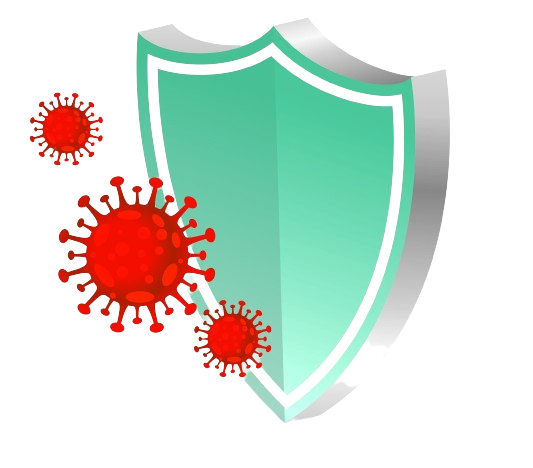
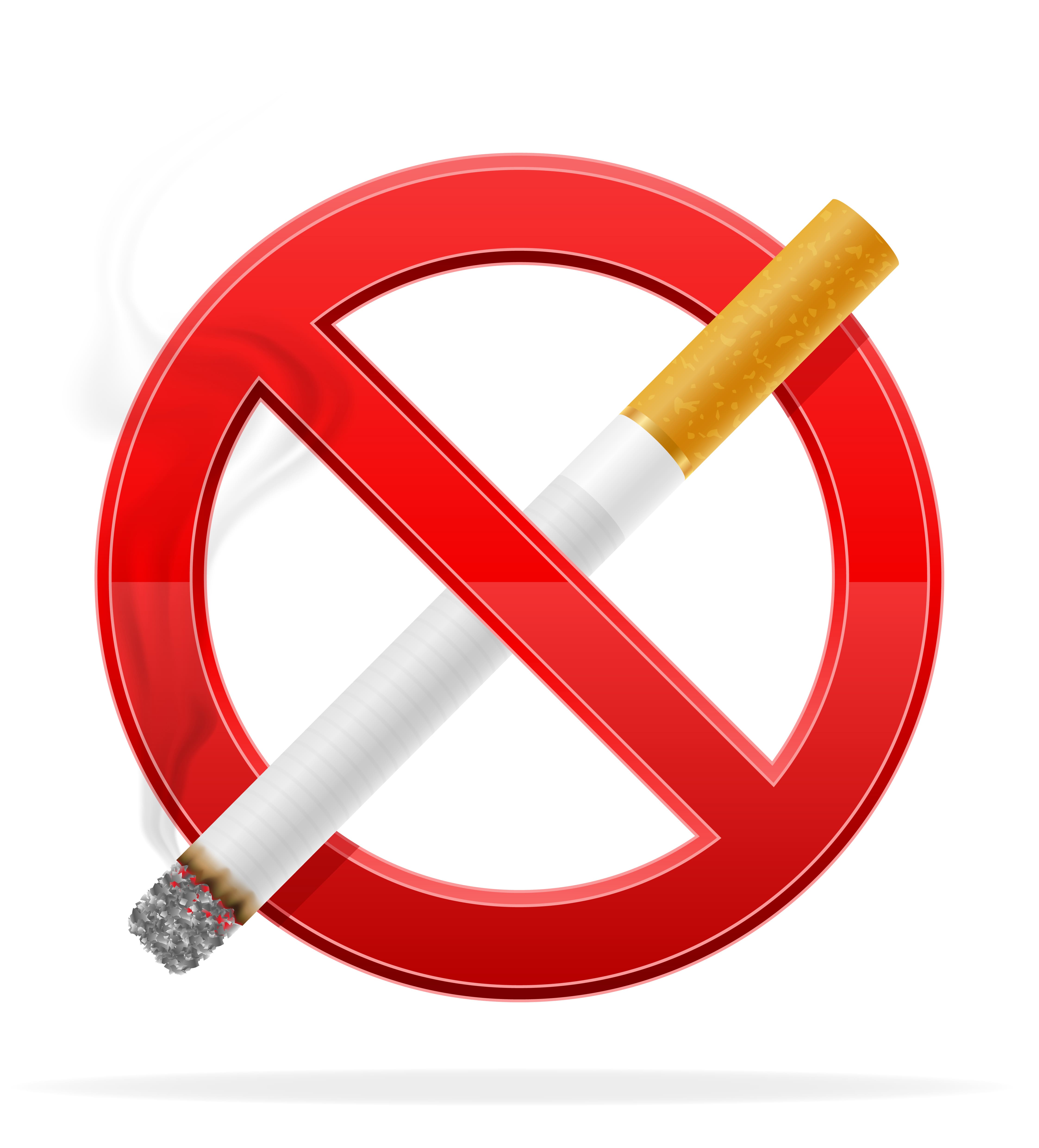
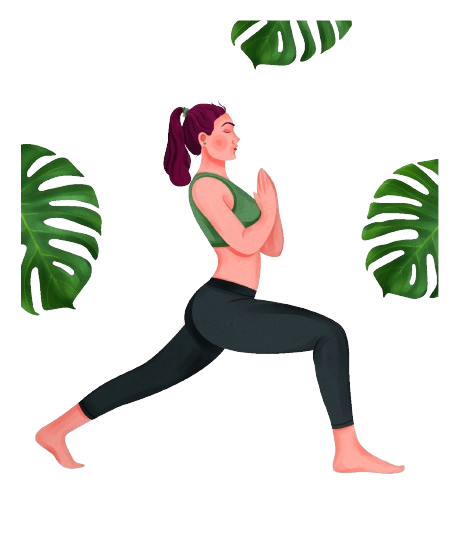

Maintain vitamin C levels.
Many people think that taking vitamin C when you have a cold can help you fight the cold faster. However, there appears to be a greater health benefit if a level of vitamin C is established and maintained throughout cold season.
Eat foods that are high in vitamin C like citrus fruits daily. Take a vitamin C supplement. Drink orange juice, but be wary of the high sugar content in juices.
Try herbal supplements.
Studies have suggested that some or all of the following supplements are effective immune boosters:
Take a multivitamin daily.
While foods are the best source of vitamins generally, supplementing your diet with a multivitamin can help you ensure that you are not missing one or more important nutrients.
You may want to find a multivitamin that specifically supports your gender, age, and activity level.
Consume probiotics.
Probiotics are “good bacteria” that help your stomach digest and absorb food effectively. The concept of probiotics is relatively new, and reintroducing the good bacteria of a probiotic can help your body fight off bad bacteria.
Eat protein.
Foods that are high in protein are often also high in zinc. Protein can help your body function well and give you energy to get through your day. Absorption of zinc on a regular basis can help super-power your immune system, and the body absorbs zinc from protein sources better than it does from supplements or plant-based zinc.
Increase your garlic consumption.
Many sources tout garlic’s antibacterial, antiviral, and even anti-cancer properties. Fresh garlic is usually best. Try using a garlic press or mincing it very small and adding it to foods after cooking the foods.
Eat a lot of fruits and vegetables.
The best way to maintain a comprehensive array of immune-boosting vitamins and minerals is to consume a variety of healthy, fresh vegetables and fruits.
Brightly colored fruits often contain more nutrients than their paler counterparts. For example, kale or spinach is more nutrient-dense than iceberg lettuce.
Your body absorbs nutrients from real food better than from supplements, so it is important to get vitamins from food even if you take a vitamin pill. Citrus fruits in particular contain vitamin C, which can boost immunity when consumed daily.
Eat better quality versions of your junk food.
The cinnamon rolls in the corner store are not at all as satisfying as those in a bakery. More expensive or higher quality sweets can be so delicious and expensive you don't feel cravings for them anymore or as often.
Consider substitutions you make yourself. Making a jelly sandwich will contain less sugar and fat than store bought pastries and not include other added additives.
Avoid eating highly processed foods.
Look for simple products with the least numbers of ingredients and easy to read or explained ingredient names. Those frozen entries and pre-made food go through processes unknown to the average consumer and contain many additional ingredients that can either harm or help your immune system. Gain control of what and how much of what ingredients go into your food by cooking your own and being selective.
Avoid eating bleached flours, cereals and baked goods. There's no real measurable amount of fiber in them and have gluten which turns to dough in one's digestive system causing strain on this critical part of the body's immune system.
Drink plenty of water.
Staying hydrated with plain, clean water is one of the most important boosters to your health and immunity. You should try to drink 8 cups of water each day, but drinking more at the first sign of illness may help you ward off impending sickness.
Avoid simple sugars. Sugar can make you gain weight; feel sluggish due to sugar crashes after consumption, and it can also reduce the efficacy of your immune system.
Remember that many people drink more sugar than they realize in beverages. Check nutrition labels on sodas and other drinks carefully for sugar content and serving size to ensure that you know how much sugar you are drinking.
Even foods that do not seem sweet may contain corn syrup or sugar. Read the labels of processed foods carefully to be sure that you know what you are putting in your body.
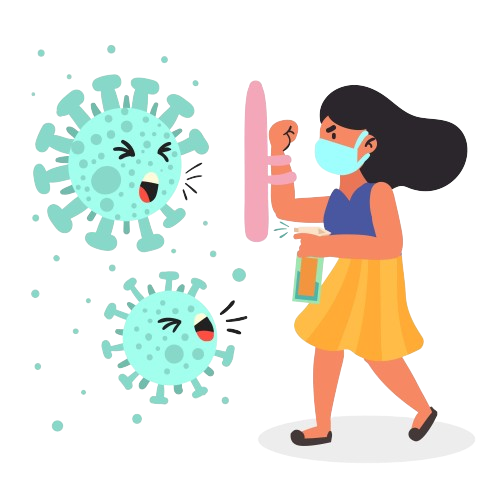
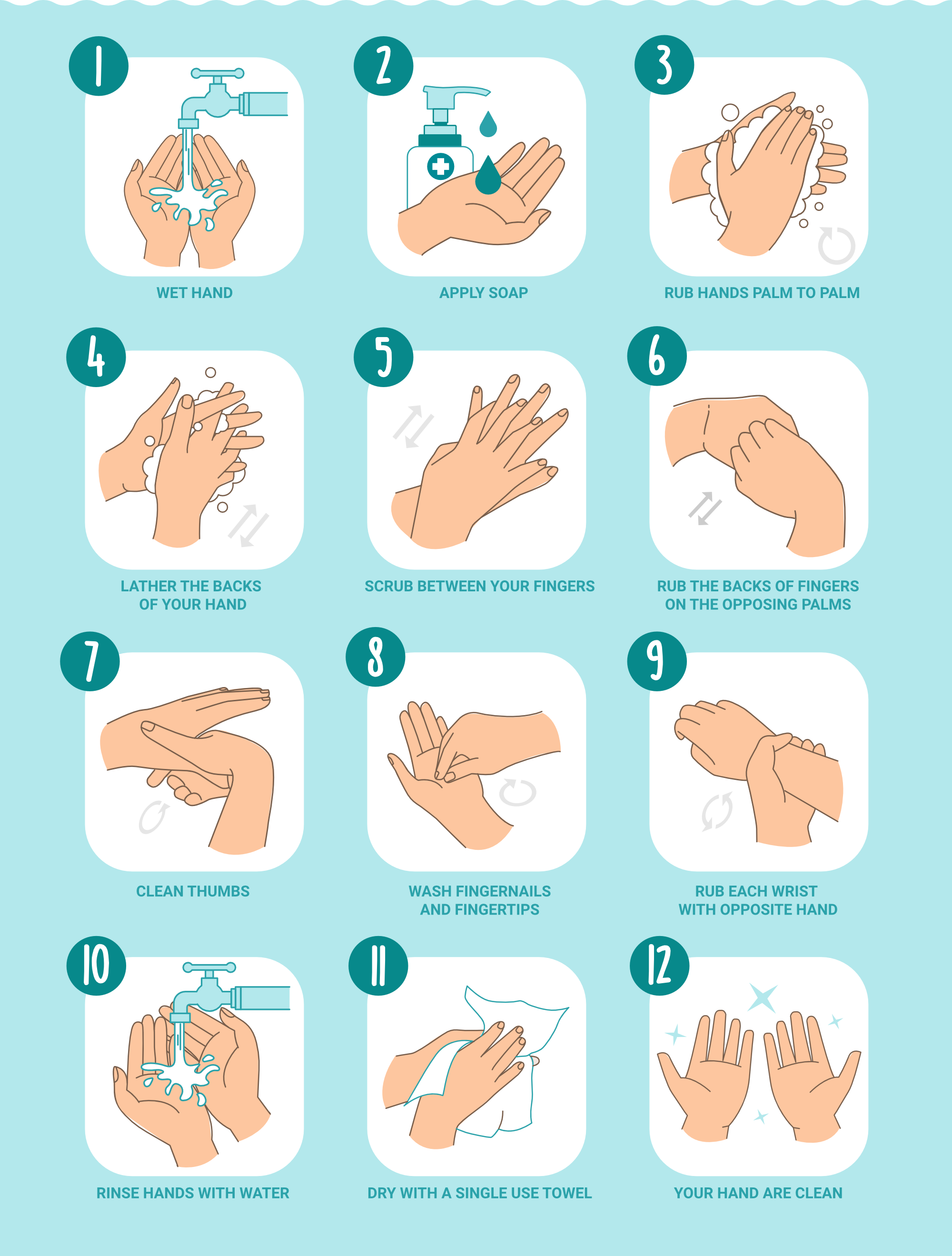
You might be brave enough to skip the common cold event this year by clobbering the bad bugs by washing your hands frequently and thoroughly, as it is one of the easiest and the most effective way to lower your risk of getting infected. But, should you opt for an anti-bacterial soap over the regular soap in your ammunition? .... After all, colds and flu are not caused by bacteria, but by viruses. Let’s take a closer look at some of the points regarding the anti-bacterial soaps or products.
According to scientific research, regular soap is just as effective as anti-bacterial soap; regular soap is cheaper also and does not cause health and environmental issues. Anti-bacterial soaps, on the other hand have many controversies, associated with it. Here are some:
Creates Resistant Bacteria
Antibacterial ingredients do not destroy all contaminants. As a defense tactics, the bacteria that survive may mutate and become resistant to the cleansing chemicals in the soap.
Anti-bacterial residues often remain on hands even after washing. This provides the opportunity for superbugs to develop, which can’t be destroyed by antibiotics.
Contains Harmful Ingredients
Substances used in some soaps, especially the anti-bacterial variety, often contain harmful ingredients that can endanger your health and the environment. For example, bisphenol A, a banned substance in many Things you must know about Anti-bacterial soap countries, is a potential endocrine disruptor and may negatively affect the hormonal system of the body. People with higher exposures of this substance are more likely to be diagnosed with allergies or hay fever.
Another chemical often found in soaps, especially anti-bacterial soaps, is triclosan, which is not only an endocrine disruptor but a carcinogen as well. Another alarming fact about triclosan is that it has already infiltrated our environment and its surge is found to be 200 -300%.
Viruses are hard to Treat
Anti-bacterial soaps are incapable to kill viruses as they are more robust than bacteria and have a stronger ability to resist disinfection. Rather, it was found that the normal soap has more advantages in removing the viruses from the hands.
How to Wash your Hands – Effectively!
The bottom line is that any type of soap can help rid your hands of harmful bacteria if used properly – you don’t necessarily need to pay extra for the antibacterial variety. It is necessary to practice the hand- washing techniques listed above thoroughly and have a stash of hand sanitizer in your bag available when you’re on the go.
You know your body's immune system is working right if you rarely get sick, you get well after being sick, and your wounds generally heal without getting infected.
But a weak or overactive immune system can lead to chronic allergies, asthma or eczema and autoimmune disorders, such as lupus, rheumatoid arthritis or type 1 diabetes. Such conditions are treated with medications and health care provider guidance.
Can your everyday habits protect immunity? The immune system works at the cellular level; it's very complex and affected by many factors. Scientists have yet to prove that any particular nutrients or behavior directly protect immunity.
Still, research strongly suggests that your immune system, like the rest of your body, functions best when you follow a positive lifestyle. In particular, exercise, sleep, and stress control appear vital to good immunity.
Three key examples:
Learn more from your provider. For example, if your diet is consistently lacking healthy foods, discuss how to include healthier foods as well as vitamin and mineral supplements.
CHECKLIST: How many ways do you support your immunity?
OTC meds for colds and flu?
A: Medications available over-the-counter do not cure the common cold or influenza. But they may alleviate symptoms and temporarily help you feel better:
DECONGESTANTS: They decrease nasal or sinus congestion. Side effects include anxiety, insomnia or increased heart rate and blood pressure. Use of decongestant nose sprays should not exceed 3 days to avoid rebound congestion. Tip: Consider using a saline nasal spray instead.
ANTIHISTAMINES: Excess drainage? Antihistamines can help dry up a runny nose or watery eyes. But they may make you drowsy and thicken the mucous, allowing secretions to build up.
COUGH SUPPRESSANTS: They're useful for frequent coughing, especially if it's painful or keeps you awake.
DRUGS FOR FEVER AND ACHES: Acetaminophen and ibuprofen can provide relief; check labels to ensure you're not getting the same ingredient from multiple products. Note: People younger than 19 should avoid aspirin, which is a cause of Reye's syndrome.
BREAST CANCER: Latest Advice
More women are surviving breast cancer today, largely due to improvements in early detection. Some good news: American Cancer Society (ACS) statistics show the breast cancer death rate dropped 40% between 1989 and 2016 - saving 322,000 lives. And fewer than 1 in 6 women diagnosed will die of the disease.
However, breast cancer remains the most commonly diagnosed cancer in women, after skin cancer. And it is a major, potentially long-term health problem with more than 268,000 new cases expected this year. Most diagnoses and deaths from breast cancer occur in women after age 50. Men account for 1% of breast cancer cases and deaths.
Is breast cancer preventable? In recent decades, countless studies have helped to identify the risks and protective factors for breast cancer.
ACS SCREENING GUIDELINES for Women at Average Risk
Age 40 to 44: Discuss screening with your provider by age 40.
Age 45 to 54: Get annual mammograms.
Age 55-plus: Get mammograms every 1 to 2 years, depending on personal risk.
Important: Ask your health care provider about the best screening approach based on your health history. If possible, choose a testing facility that uses digital mammography with potentially better detection.
Age: Risk increases with age.
Age at menopause: After age 55 risk is 30% higher than menopause before age 45.
Alcohol use: 2 to 3 drinks a day raises risk 20% above non- drinkers.
Smoking: Raises risk in younger, premenopausal women.
Blood estrogen: Having higher levels after menopause.
Family history: Having a first degree relative who had breast, ovarian or prostate cancer.
Genetic mutations: Includes BRCA1 and BRCA2 genes.
Dense breast tissue: Reduces cancer detection on mammograms.
Other factors that may slightly increase risk: birth control pill use; estrogen-plus- progestin menopausal hormone replacement therapy; high bone density at post-menopause; and being Caucasian.
Protective factors that may REDUCE RISK:
Get moving every day to improve your odds against breast cancer as many studies over the past 20 years have consistently shown. Scientists believe that physical activity regulates hormones (including estrogen and insulin) that can fuel breast cancer growth.
How much exercise? More activity is better than less, and more vigorous activity is more effective. The ACS recommends all adults engage in at least 150 minutes of moderate-intensity or 75 minutes of vigorous-intensity activity each week, preferably spread over your week. Note: It's important to build up to those levels; get 20 to 30 minutes of brisk walking each is an excellent exercise plan, but you can mix it up with biking, swimming or similar activities that get your exertion to about the same level.
Water regulates our body temperature, keeps our joints lubricated, helps prevent infections and delivers nutrients to our cells and works in tandem with our kidneys and liver which work hard to get rid of toxins in our bodies, and for which they depend on water to do their job.
Water makes up about 60% of your body's weight, and although you can survive without food for weeks, dehydration can kill you within days or even hours, depending on the temperature and your environment.
Dehydration means more water is moving out of your body's cells than into them. And as this happens, it's not just water that you lose. Small amounts of electrolytes critical to cell function and energy, such as sodium and potassium, are lost along with the water. You're constantly losing water and electrolytes throughout the day via breath, sweat, urine and bowel movements, so even mild dehydration can exhaust you and affect many of your body's daily functions.
You could quickly become constipated as your colon steals water from your stool to keep your digestive system moving. Urine will become darker; prolonged dehydration can also crystallize salts and minerals in urine, possibly leading to the formation of painful kidney stones. And sometimes because dehydration can often be mistaken for hunger, you might gain weight as you try to satisfy your body's needs. Fortunately, the opposite is also true if you're hydrated.
If you are looking to lose weight, water can help you shed pounds as drinking a glass of water before a meal can fill you up a bit and help you eat fewer calories at a meal.
If you suffer from migraines, dehydration might easily trigger an episode. Headaches are also likely to last longer if you're low on fluids. In addition, dehydration can leave you unable to concentrate, cause short-term memory problems and leave you feeling moody and anxious.
"When you're well-hydrated, your sleep quality is better, your cognition is better, you function better, your mood is better, the list goes on.
The signs of dehydration differ by age group. Infants and young children may not be able to recognize their need for fluids, so it's critical to provide frequent fluid intake and keep an eye out for symptoms of dehydration: irritability or lethargy, no tears when crying, no wet diapers for as little as three hours, a dry mouth and tongue, sunken eyes and cheeks, and a shrinking of the soft spot on top of head.
In adults different signs of dehydration can be observed, including fatigue, dizziness, confusion, less- frequent urination and extreme thirst, but the latter has one exception: the elderly. Older adults may not feel thirsty but can still be dehydrated.
That's why one of the best ways to tell whether you're lacking fluids is by the color of your urine.
"The morning is the best time to get a global sense of your hydration status. If your urine looks more like apple juice instead of lemonade, then you're dehydrated. On the flip side, the need to urinate throughout the day is a sign that you're well-hydrated."
A lack of fluids is not the only cause of dehydration. Certain blood pressure and diuretic medications can increase urination, as can diabetes that has not been diagnosed or isn't well controlled.
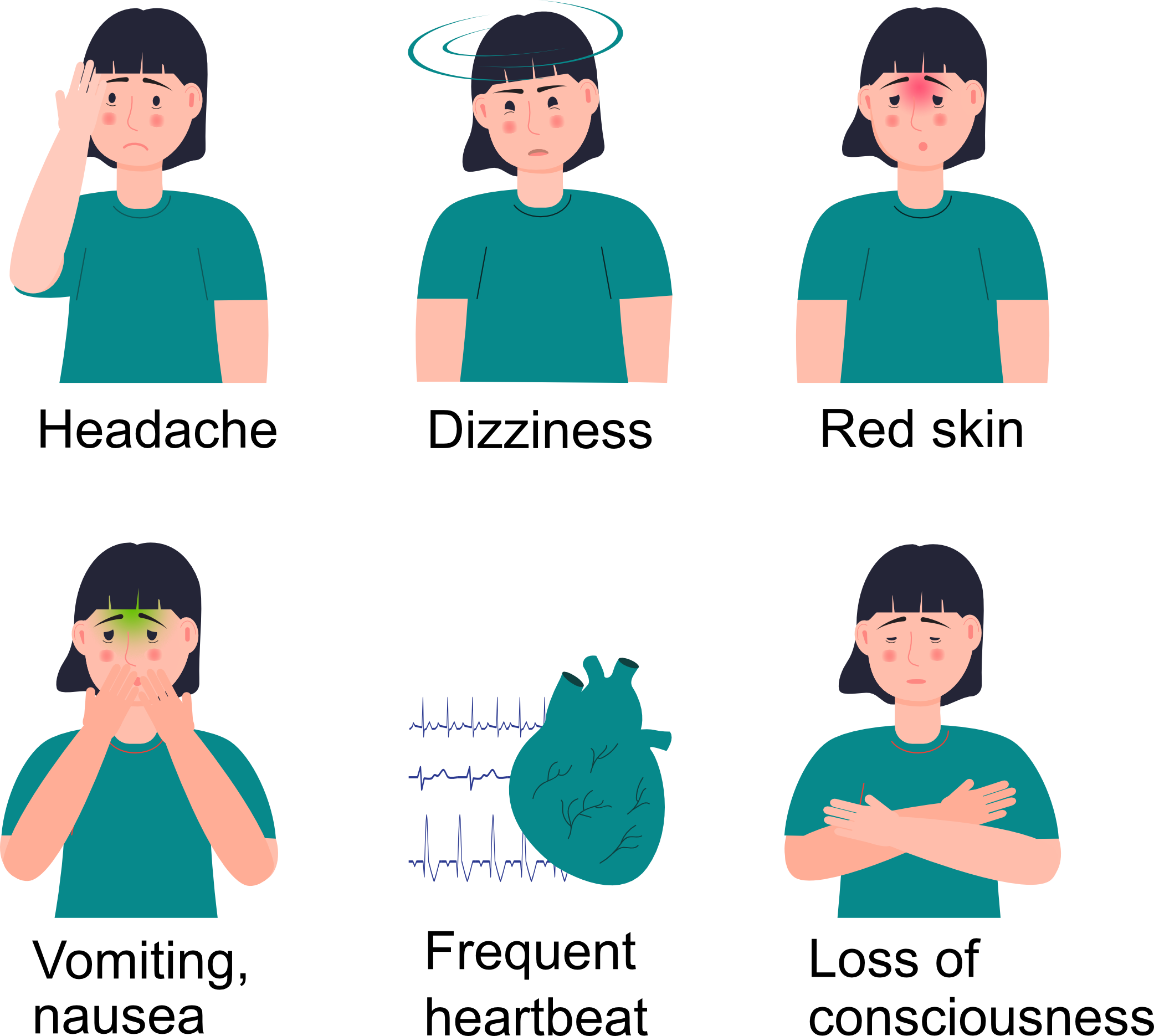
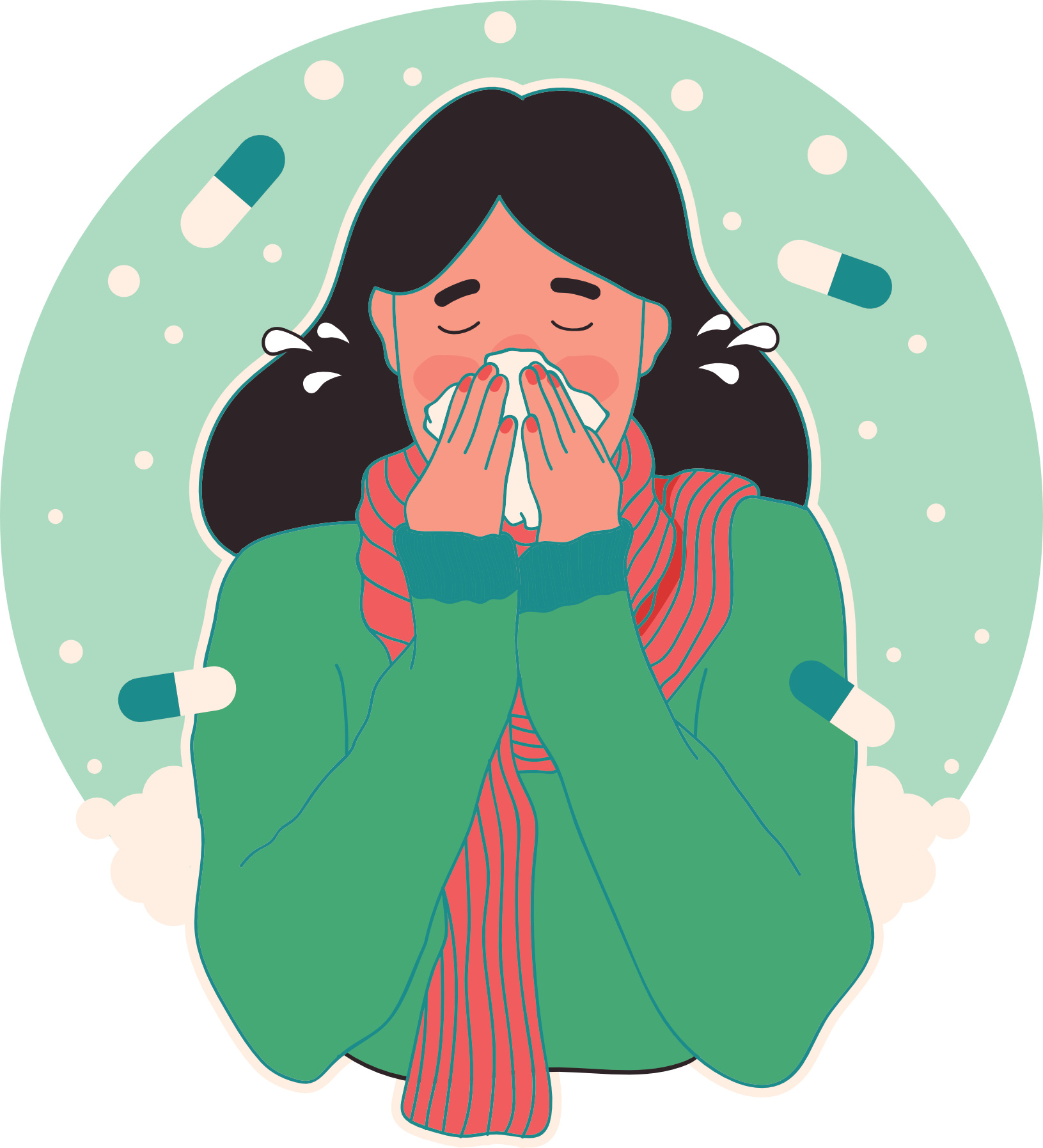
The common cold affects children 5-10 times per year and adults 2-3 times. Seems like someone in the family is always recovering from something, doesn’t it? It is the main reason kids miss school and adults miss work. If you’re running a low-grade fever, which is expected with the cold, you do need to stay home until you’re fever-free for at least 24 hours without the help of medication.
Most people catch a cold in the winter or spring but you can get it anytime. The common cold usually resolves on its own in 7-10 days and, unfortunately, there’s nothing we can do to speed it along.
As a general goal, it is best to aim for 30 minutes of physical activity every day. Specific goals may require fine tuning of the fitness regimen.
There are some popular alternative remedies for cold; some examples of these are Vitamin C, Zinc, and Echinacea. The most important thing we can do to prevent catching or spreading colds is to wash our hands! Colds spread like wildfire because the virus lives on everything we touch! So wash hands, keep hands away from face, cough/sneeze into a tissue or sleeve, and clean all surfaces/phones/toys frequently.
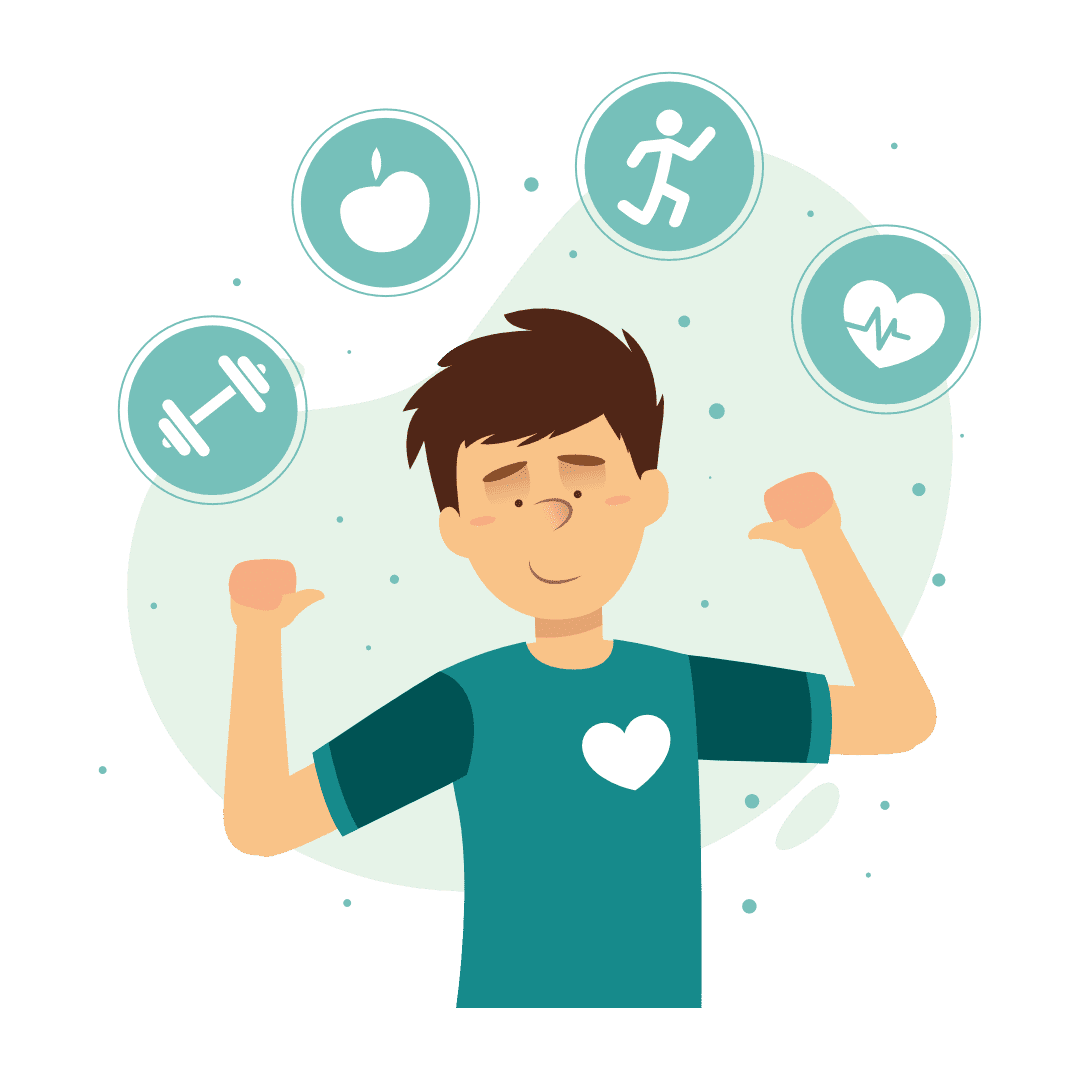
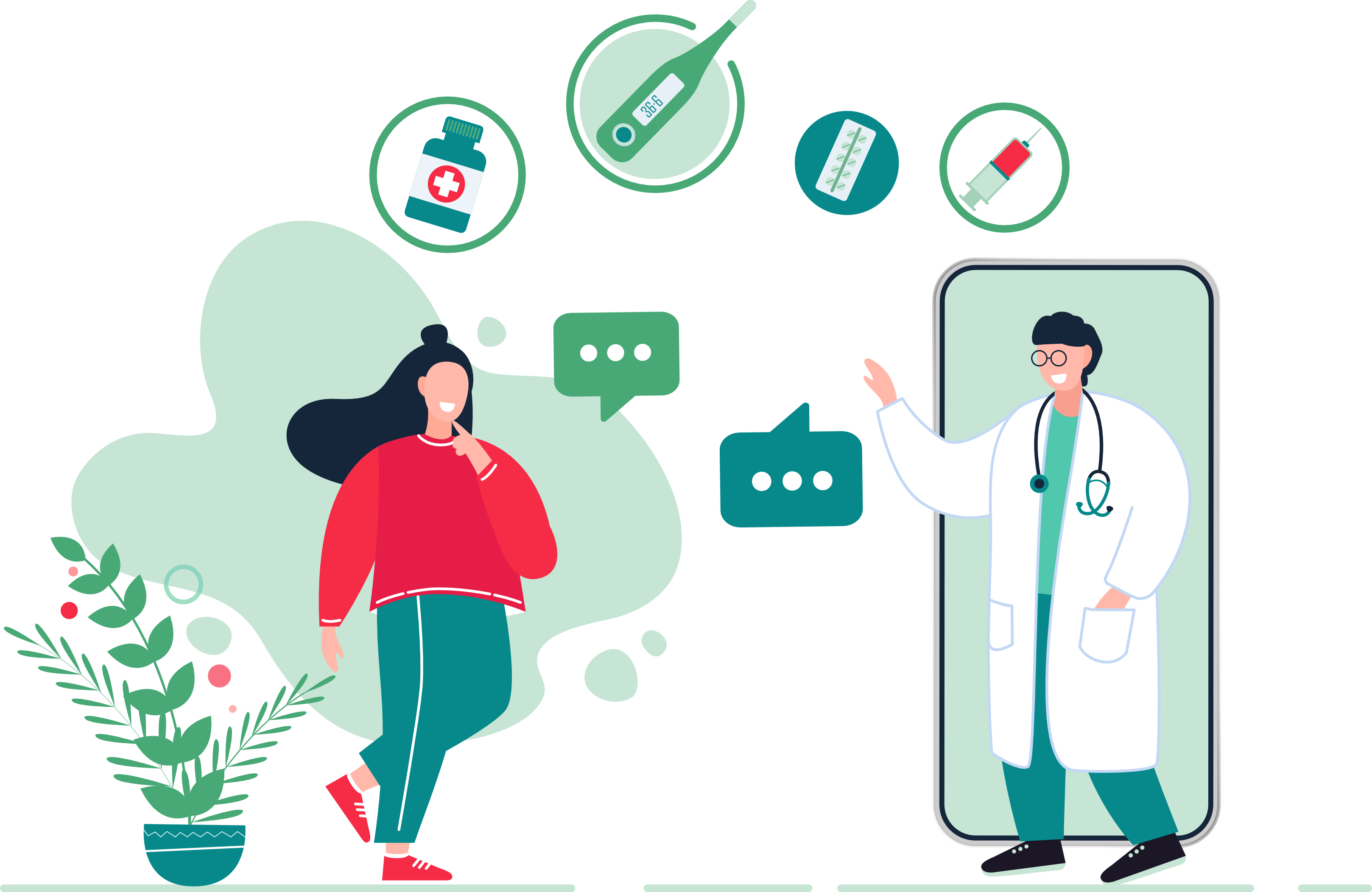
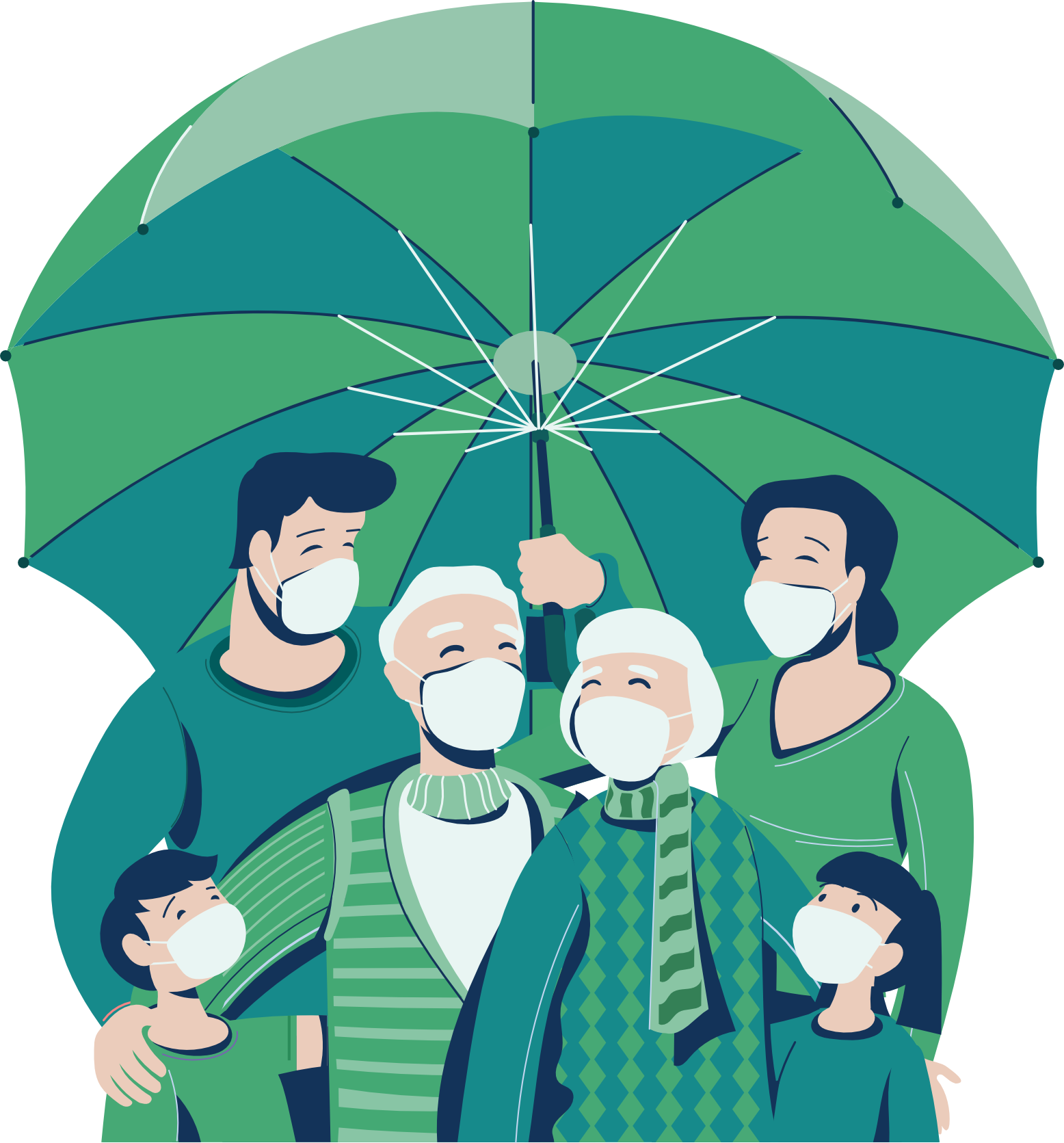
Content is sourced from public domain & is provided by Vidal Health for educational & informational purposes. It should not be considered as a substitute to medical advice. Vidal Health makes every effort to ensure accuracy or completeness of editorial content, However we do not take responsibility for any errors, omission & also do not take responsibility to ensure that data, information of material is kept up to date. The views expressed in these articles are not necessarily those of Vidal Health. Reproduction, modification, storage in a retrieval system or retransmission, in any form or otherwise, for reason other than educational & for informational purposes are strictly prohibited without prior written permission of Vidal Health.
Corporate Office: Vidal Health Insurance TPA Pvt. Ltd. First Floor, Tower No. 2, SJR I-Park, EPIP Zone, Whitefield, Bangalore - 560066
Phone : +91080-48057205
Email : customerservice@vidalhealth.com
